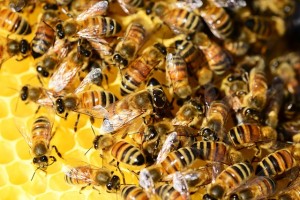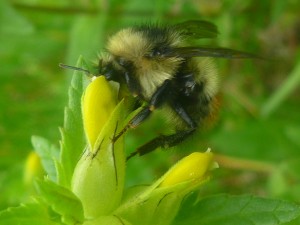Can you imagine a world without honeybees? At first glance, bees can be quite frightening, especially if you are allergic to them. However, honeybee populations are currently on a steady decline and a loss of these insects can have serious effects on our society. As it is these small pollinators that have a hand in providing us with a third of what you see in all produce departments. Not to mention, the delicious honey that they provide us.
Pollination is an incredibly important step in producing new healthy plants, some of which are used as food by humans and other species. There are two types of pollination: cross-pollination and self-pollination. Cross-pollination is the process of plant reproduction that requires an external mechanism, such as insects or wind, to transfer the pollen of one plant to another plant of the same species. On the other hand, self-pollination only needs the pollen produced by itself to reproduce.
If pollinators, such as bees, are not in abundance, it can put pressure on plants to self-pollinate, which can lower genetic diversity in plants. A decrease in genetic diversity in one species can lead to a decrease in biodiversity among species’ which can be very harmful to an ecosystem. Some plants can self-pollinate without penalty, but for others, pollinators are crucial to maintaining genetic diversity in the species.
In research led by Dr. Anna Hargreaves, a herb called Rhinanthus minor was studied in the Rocky mountains of Alberta. Interestingly, this herb is able to self-pollinate successfully, but also produces flowers that attract bees to promote cross-pollination. She investigated how a reduction in bee visitations might affect the distribution of the plant. Watch the video below for more details on her research.

As mentioned earlier, honeybee populations are quickly declining. This is a problem because honeybees are considered to be the primary pollinator of the majority of human food crops. There are several causes thought to affect honeybee populations, including several chemicals contained in pesticides used in agriculture. For this reason, it is important to take immediate action to prevent a decline in the honeybee population.

Image credit (from podcast) : www.flickr.com
Next time you’re eating peaches, honey, or receiving flowers as a gift, think about how bees have contributed to your life, and what you can do to make sure these products and the bees are available in the future.
Stay buzzy as a bee,
Group 3
Candace Chang, Dixon Leroux, Dorothy Ordogh, & Rafael Alfaro


